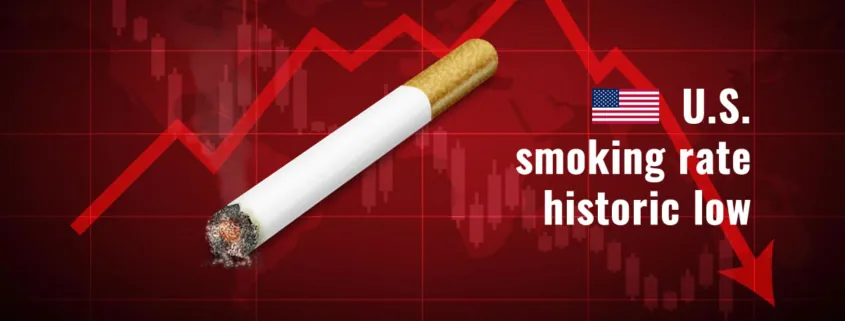Gallup Poll Reveals U.S. Cigarette Smoking Rate Historic Low
In the latest Gallup poll, the United States has witnessed a remarkable decline in cigarette smoking rates, reaching an 80-year low. The latest findings, based on the annual Consumption Habits poll conducted from July 1-21, show that only 11% of U.S. adults reported smoking cigarettes in the past week. This figure matches the historical low recorded in 2022 and is a significant drop from the 41% reported when Gallup first inquired about cigarette smoking in 1944.
Young Adults Drive the Decline
The decline in cigarette smoking can be largely attributed to the sharp decrease in smoking among young adults. Over the past three years, an average of only 6% of adults under the age of 30 reported smoking cigarettes in the past week. This is a drastic reduction from the 35% of young adults who smoked between 2001 and 2003.
Interestingly, young adults now have the lowest smoking rates among all age groups. The poll found that 13% of those aged 30 to 49, 18% of those aged 50 to 64, and 9% of those 65 and older currently smoke cigarettes.
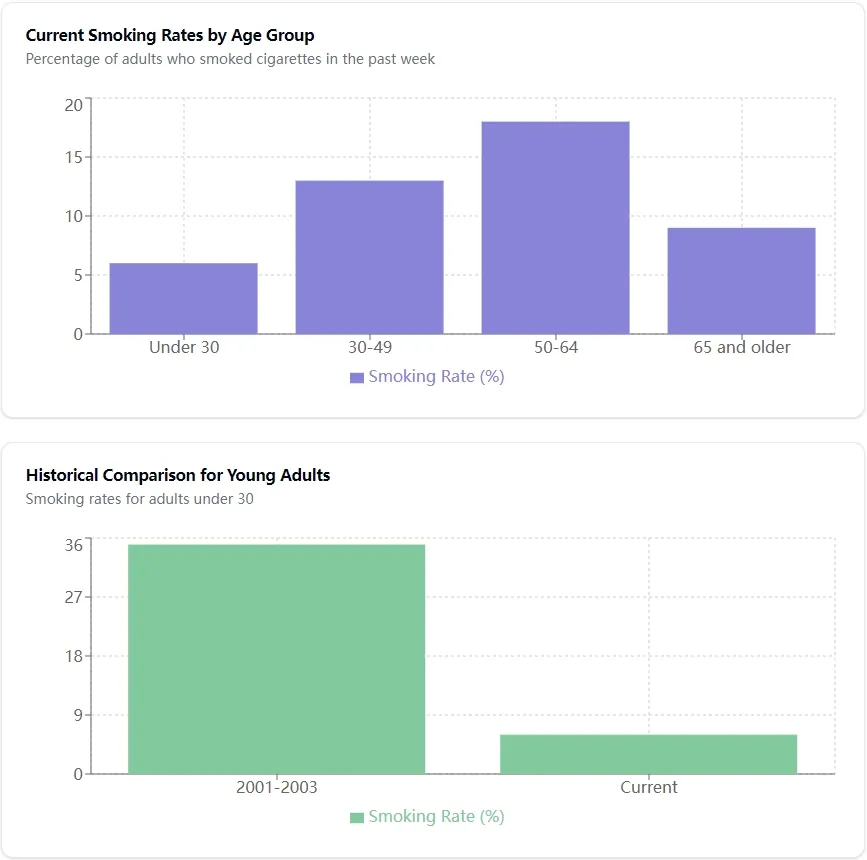
Education Plays a Role
The Gallup poll also revealed a correlation between educational attainment and smoking habits. Based on combined data from 2022 to 2024, only 5% of college graduates reported smoking cigarettes, compared to 15% of those without a college degree. While these rates are significantly lower than the 14% of college graduates and 30% of college nongraduates who smoked between 2001 and 2003, the educational gap persists.
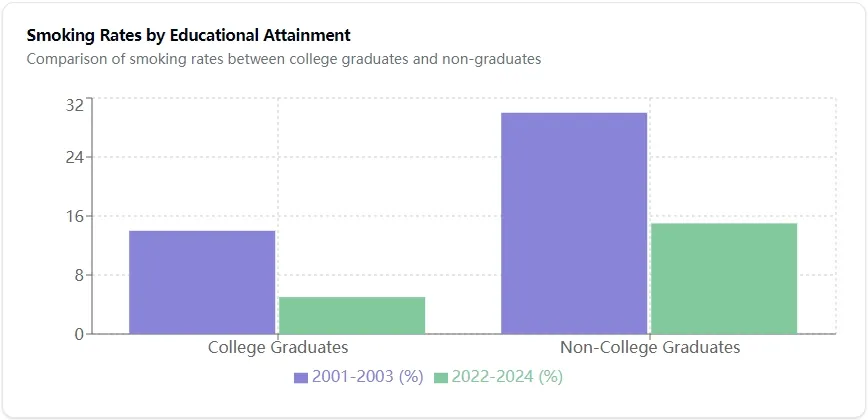
The Rise of E-Cigarettes
While traditional cigarette smoking has declined, the use of electronic cigarettes, or vaping, has emerged as a new trend. The poll found that 7% of U.S. adults reported vaping in the past week, a figure that has remained steady between 6% and 8% since 2019.
Young adults, who are now the least likely to smoke cigarettes, have the highest rates of e-cigarette use. According to combined data from 2022 to 2024, 18% of adults aged 18 to 29 reported vaping, with the percentage decreasing among older age groups.
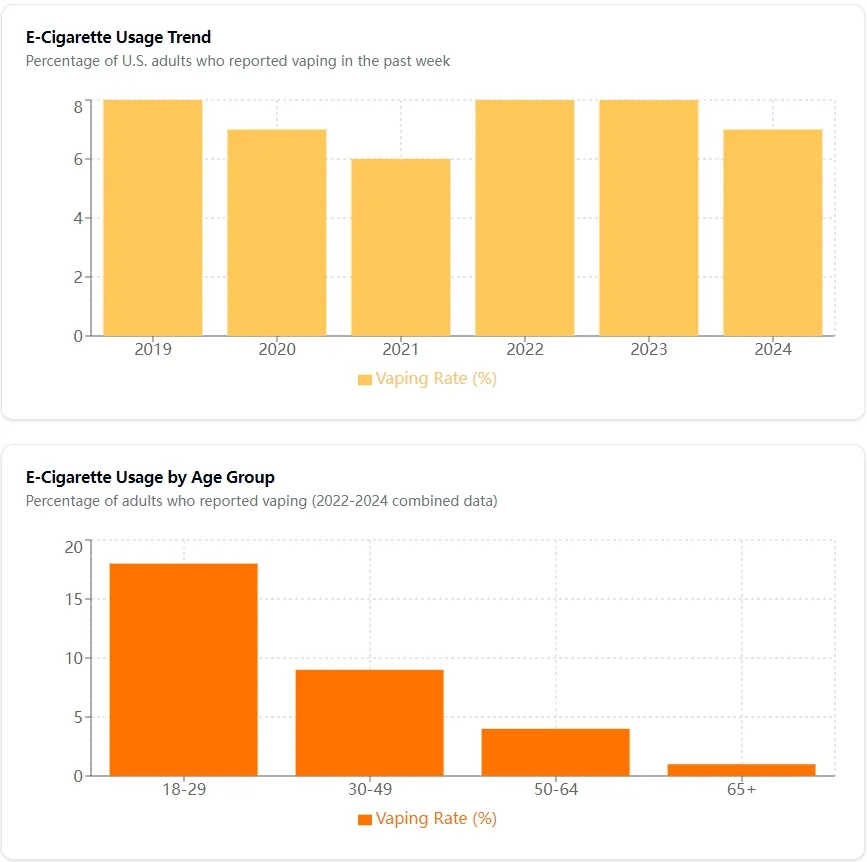
Perceived Harm of Tobacco Products
The Gallup poll also investigated Americans’ perceptions of the harm caused by various tobacco products. A staggering 79% of U.S. adults believe that cigarettes are “very harmful” to users, while 57% hold the same view about e-cigarettes.
Majorities of Americans also consider chewing tobacco (53%), cigars (37%), pipes (36%), and nicotine pouches (27%) to be “very harmful.” However, at least seven in 10 Americans believe that all of these substances are at least “somewhat harmful.”
Unsurprisingly, those who smoke or vape are less likely to perceive their respective substances as harmful compared to nonsmokers and nonvapers.
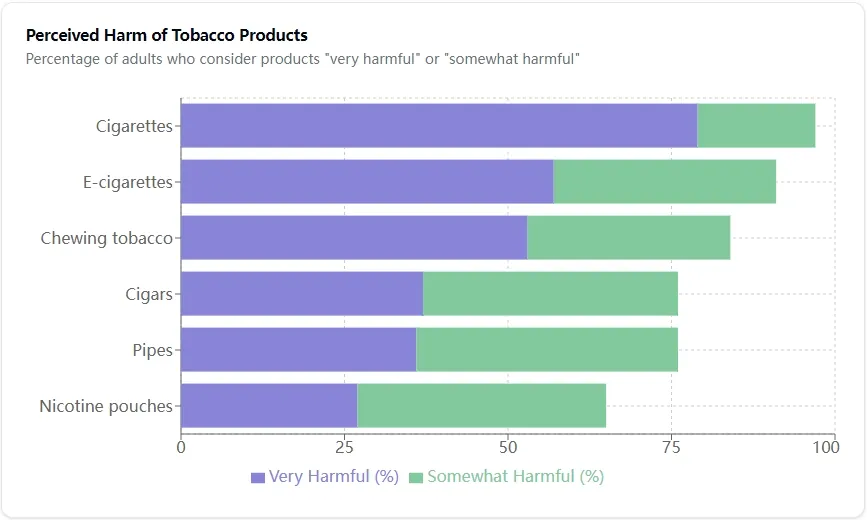
Looking Ahead
The historic low in cigarette smoking rates can be attributed to decades of medical warnings and educational efforts highlighting the health risks associated with smoking. The most recent cohort of young adults has played a significant role in this change, defying historical trends that saw young adults as the most likely age group to smoke cigarettes.
However, the rise of e-cigarette use among young adults suggests that they may be substituting traditional cigarettes with vaping. While vaping rates among this group are still lower than past cigarette smoking rates, public health officials remain concerned about the potential long-term effects of e-cigarette use.
If current age trends persist, with today’s young adults continuing to vape as they age and future generations adopting vaping at high rates, e-cigarette use may eventually surpass traditional cigarette smoking. While vaping presents fewer health risks compared to tobacco smoking, public health officials emphasize that abstaining from both activities is the preferred choice for optimal health.
- Bestselling Vapes in UK After Disposable Ban: What to Stock 2025 - August 8, 2025
- Argentina Debates Stricter Vape Laws Amid Prohibition Failures - August 8, 2025
- Nigeria Advocacy Group Urged to Hike Tobacco & Vape Tax by 100% - August 8, 2025

